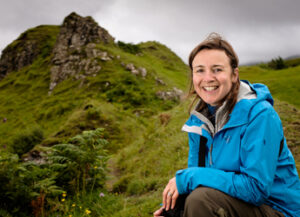Research increasingly asserts that biodiversity enhancement and conservation will be more inclusive and effective if we pay serious and analytical attention to narratives. An understanding of how narratives and stories work to marginalise (or not) particular people, ecologies and ways of knowing is fundamental.
About the RestorYation Cairngorms project
Narratives and stories are central in how we understand ourselves and our relations to others (both human and non-human). They underpin how we engage with the world, and how policies and practices are framed. Science plays an important role in shaping such narratives by promoting particular forms of knowledge, problematisation of issues, and solutions.
Our review of existing research suggests three key forms of marginalisation work in relation to narratives and biodiversity research and management:
Marginalisation of people and social or cultural groups (e.g. age, gender, ethnicity, sexual orientation, disability).
The following video illustrates this with regard to young people:
Marginalisation of particular ecologies (e.g. particular species, species assemblages, habitats, ecotones).
The following video illustrates this with regard to montane woodland and scrub ecologies:
Marginalisation of particular ways of knowing, notably:
- Knowing as embodied, sensory and emotional as well as cognitive;
- Knowing as not only done by humans;
- Knowing as done through languages other than English-speaking and discursive domains. For example: minority languages, visual languages, as well as biosensory, biochemical or other more-than-human ‘languages’ or modes of articulation and response.
The following video illustrates this with regard to Gaelic language as a way of knowing the ecology of a place:
In this research, we will identify narratives which are usually outside or on the margins of biodiversity research, and develop and evaluate audio-visual and interactive narrative tools and techniques to enable their productive engagement for transformative change.
Would you like to contribute to this project with your story or perspective? Find out how to do this here.
Outputs from the RestorYation Cairngorms research
- In March 2023 we published a report on a scoping review of marginalised narratives in biodiversity research and management. In this report we review the opportunities and barriers to greater inclusivity of narratives typically marginalised in biodiversity research and management in Scotland. We draw on existing academic literature, policy documents and data, and stakeholder interviews. Download the report here.
- In October 2023 we presented this project at the Cairngorms Connect Staff and Volunteer Conference in Aviemore.
- In November 2023 we published a blog post summarising our work on this project to date, and our plans for the future of the project. Read the blog post here.
- Also in November 2023 we published a report on a scoping review of digital platforms suitable for developing greater inclusion of diverse biodiversity narratives. This report presents a scoping report of technologies suitable to present videos of narratives relating to biodiversity, with a focus on marginalised views and experiences of biodiversity. The report describes the process followed to choose the software and underlying structure to share those narratives on the internet. Download the report here.
Researchers involved



This research is funded by the Scottish Government RESAS Strategic Research Programme (SRP) 2022 – 2027, and is part of D4.1 (People and Nature).
This project is informed by the project ‘Understories’ in the previous SRP 2016-2021.
